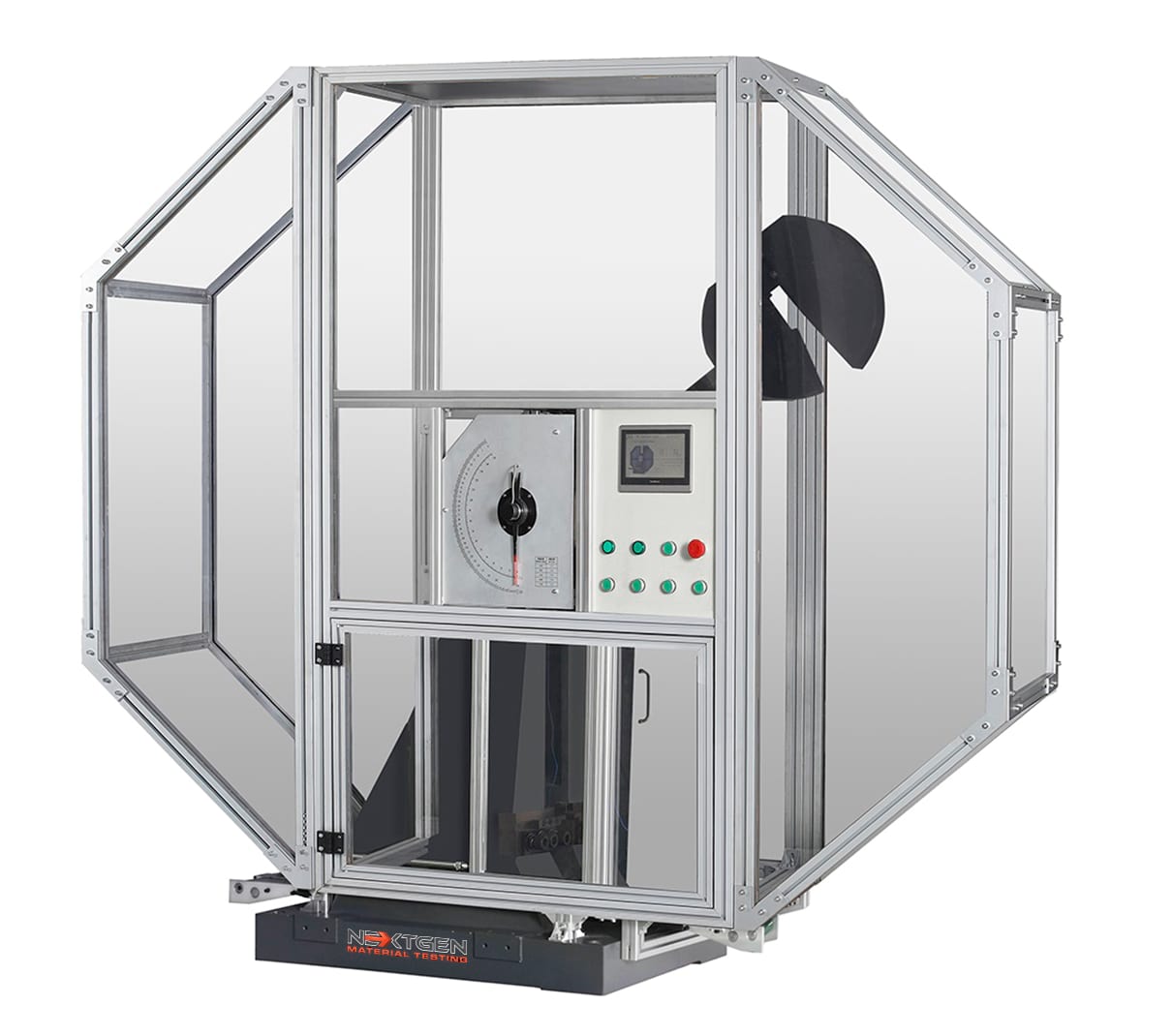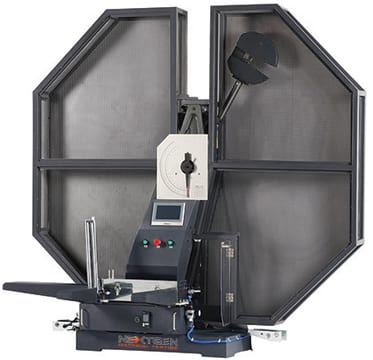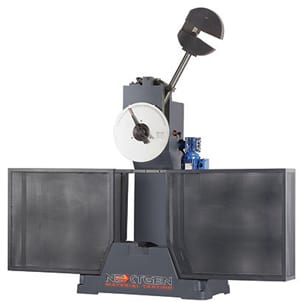Features and Benefits of the Izod Impact Strength Test

The Izod impact test is a type of test that measures the relative toughness of a material. Toughness in this context correlates to the material’s capacity to absorb energy.
The Izod and Charpy tests are the standard methods for impact strength testing. Operators use a Pendulum impact testing machine to perform both tests. The tests share some similarities and differences as well. One similarity is the specimen used in the tests. Both tests use notched specimens that get hit by a swinging pendulum striker. The specimen is often a metal bar with a V-shaped notch.
The main difference between the two tests is the arrangement of the specimens in the impact testing equipment. The specimen in the Pendulum Charpy impact tester is a horizontal beam secured on both ends, while the specimen for the Izod impact tester is cantilevered in a vertical position.
The Charpy test material has only one notch in the middle. The Izod specimen can have up to three notches. This means that a Pendulum izod impact tester can test for multiple fractures in one specimen.
The Izod impact method can test for the toughness of metallic as well as plastic materials. The Charpy method only tests for metallic materials. This multi-purpose ability is one reason why many prefer the Izod impact testing machine.
Summary of the Izod impact test procedure
Izod tests are often performed on an instrumented machine with a weighted pendulum. The machine’s operator lifts this pendulum at a certain height and locks it in place. A notched specimen then gets secured on a support anvil in the lower part of the machine.
The tester calibrates a dial, makes safety checks, then toggles a switch to release the pendulum. The swinging pendulum then strikes the exposed end of the notched specimen. The energy absorbed by the specimen is then computed afterwards.
The impact test is vital to the aerospace, construction, automobile and shipbuilding industries. Other industries that manufacture materials also need to have this test done. This is to ensure that the materials produced are durable, of high quality, and safe.
NextGen Material Testing Inc. is a company that offers a wide selection of impact testers and metal testing equipment. They also have a combined Charpy and Izod impact tester for sale. The company also offers equipment for testing plastics, rubber, and concrete.
Some models offered by NextGen Materials Inc. have the following features:
Single and Double Column
The columns refer to the impact frame of the tester. Double columned ones have a front and rear impact frame. A double columned frame provides a sturdier support structure than a single columned frame.
Open and Enclosed Testers
The basic Pendulum impact testing machine is an open apparatus. This means that the machine has no protective casing. This setup offers less protection. There’s a chance of fragments flying all over the place with an open machine.
An enclosed Pendulum impact tester has a complete protective covering. The enclosure is built from high strength material that guarantees a greater degree of protection during impact testing.
Regular Motor and Servo Motor
The basic models run on standard direct current motors. These are the regular two wired motors with power and ground. A Servo motor is a three-wired motor setup. The motor includes a sophisticated controller besides the power and ground. Advanced impact testers equipped with Servo motors can provide for more precise positioning.
Industry Standards

NextGen Materials Inc. impact testing machines are testable to meet the following industry standards: ISO 148, EN 10045, ASTM E23 ASTM E1820, ASTM E2298, and DIN 50115.
ISO 148 – describes international standard test methods for metallic materials. This standard lists requirements for Charpy impact strength tests.
EN 10045 – is a European standard with test methods for metallic materials. This is also designed for Charpy impact strength testing.
ASTM E23 – outlines test methods for notched bar impact testing. It covers requirements for metallic materials as well. This standard can apply to both Charpy and Izod impact strength testing.
ASTM E1820 – details methods for determining fracture toughness. This standard categorizes fractures into different values. The test methods are also for metallic materials. This standard is useful when it is not possible to predict the specimen’s response prior to the test.
ASTM E2298 – this standard is for instrumented impact testing of metallic materials. This requires the installation of sensors and instruments into Impact testers for collecting more data. The standard is also for Charpy impact testing.
DIN 50115 – this standard covers notched bar impact bend testing. The standard describes requirements for non- ISO test specimens and also for testing metallic materials.
An Izod impact test must conform to either ISO or ASTM material standards. The standard to follow depends on the impact testing requirements. There are differences between ISO and ASTM standards such as the units of measurement used.
Calculation for the impact strength is also different for both standards. For ASTM, impact strength is the result of dividing the impact energy (measured in Joules) by the thickness of the specimen material. For ISO, impact strength is the result of the impact energy (also in Joules) divided by the area around the notch.
Special Features

NextGen Materials Inc. advanced machines offer the following special features:
- An enclosed casing for better protection during impact testing.
- Comes with a touch screen display for interfacing with the machine. Also comes with an option to connect to a PC for advanced software analysis.
- A servo motor positions the pendulum hammer at the beginning of the test. It can later reset the arm back to the starting position after the test. The servo motor can also apply braking to the pendulum. It also allows for testing pre-set angles.
- Option of adding a force sensor inside the pendulum striker. This helps in gathering precise data samples and taking advanced force and energy measurements.
- Equipped with high-quality PLC for precise positioning of the pendulum arm.
- Machines are compliant to industry standard testing methods.
- Option to connect to the latest Electromechanical TestPilot Control Software. This software offers advanced features such as real-time displays, graphs and curve analysis.
Benefits of NextGen Materials Inc. products
- Most of the machines are easy to operate with a user friendly interface. The operations manuals are also very easy to understand.
- High precision. The company ensures that each machine is well-calibrated and reliable.
- Products can be customized to user’s specifications.
- Technical support has a fast response time so that issues with the equipment get resolved as soon as possible.
- Products are certified to latest industry standards.
- The company offers a Life time consultation advantage. They also provide technical support for the lifetime of the machine.
- They can also provide product training and annual calibration of the equipment.